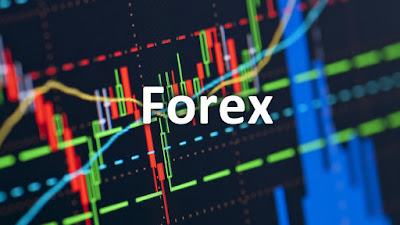What is Forex?
Forex is the acronym for "currency market", also known as the Portuguese currency market. The currency is the financial space with the largest dimension and the highest liquidity in the world, with more than 4 billion dollars a day in commercial movements. The size of the foreign exchange market is such that the trading volume of the New York Stock Exchange does not even reach 2% of those realized in the currency.
Currency pairs and exchange rate
In forex trading with currency pairs (cryptomoedas and more). By analyzing the EUR / USD exchange rate, you can see how many USD (listed or secondary currency) you need to buy 1 EUR (base currency).
Therefore, if the exchange rate of the EUR / USD currency pair is 1.2356, this means that each euro can buy 1.2356 dollars.
If the exchange rate increases, it means that the base currency has strengthened against the secondary currency. If the exchange rate eventually decreases, it means the opposite.
The characteristics of the Forex or Forex market
Liquidity: Because of the $ 5 billion that circulates daily, the foreign exchange market is considered the most liquid market in the world. Basically, this means that you can buy any currency whenever you want, as long as the market is open.
Dynamic and decentralized: the foreign exchange market is a dynamic and decentralized market, meaning that any trader can invest anywhere in the world and, consequently, influence the price trend of a pair.
24/5 hours: A key factor that characterizes trading on the foreign exchange market is the number of hours of operation; The foreign exchange market is open 24 hours a day, five working days a week, which makes it very attractive for many traders.
What are the factors that affect the foreign exchange market?
As currency transactions are immediate, the price of foreign exchange is affected by the law of supply and demand and, consequently, by speculation.
Thus, stability and the political and economic events, as well as the monetary policy of the countries, are elements that characterize the contributions.
Shares of private and public economic agents. Financial institutions, governments and central banks in each country can directly affect the price of a currency by adopting certain economic measures and announcements. For example, a rise in interest rates in the US Federal Reserve would increase the value of the US currency.
Political, social and economic events. If Forex participants believe that a social event, can influence the political, economic or natural strengthening or decline in a currency, they will change the market price with its operations that offer change and demand for the currency concerned. The more people believe that a consistent trend is followed, the more it will affect market prices, as this will reflect market sentiment. Recent major events such as Brexit or the US elections directly and immediately influenced the value of currencies.
Reports of economic and social organizations. Debt analysis with the IMF, large loans from the EU or the health of the industry in a given country (especially the big powers), as well as data on unemployment and inflation, still offer a more translucent vision of what might happen on the markets and in the economy, so it also has a rather accentuated weight under the currency.
What should I do when I trade in the currency?
Forex Trading always involves trading with a currency pair. For example, if you think the pound sterling (GBP) will value against the dollar, you should buy the GBP / USD currency pair.
If, on the contrary, we expect a devaluation, that is to say that the dollar will strengthen, he will have to sell the currency pair he has.
The first case is called the buy position, which means that the trader wants to buy the base currency (GBP) and sell the secondary currency. In the second, the operator would open a sales position to sell the pound sterling (GBP), the base currency.


Nenhum comentário:
Postar um comentário